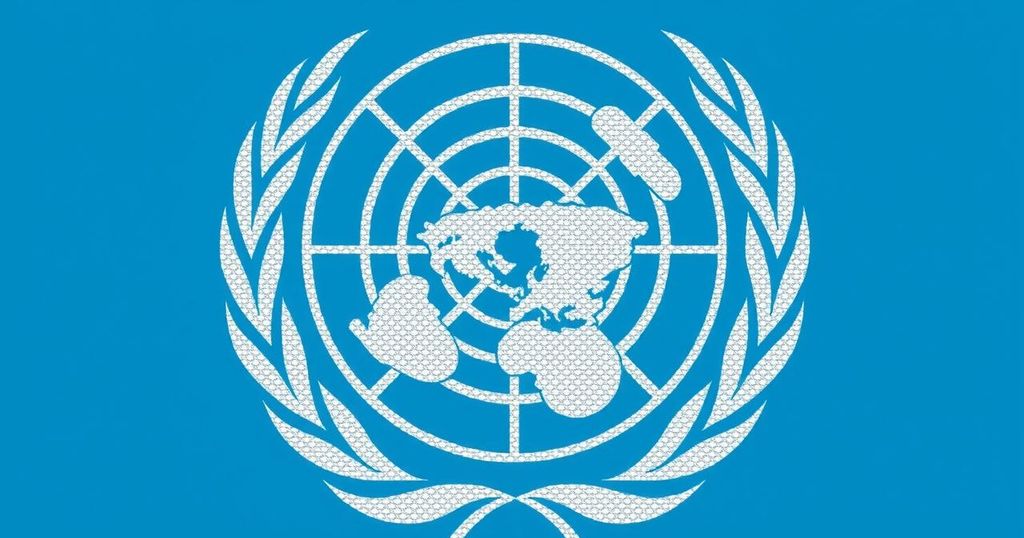Climate change
ASIA, CLIMATE CHANGE, DONALD TRUMP, EUROPE, GAZA, GAZA STRIP, HUMANITARIAN AID, HUMANITARIAN CRISIS, JAN EGELAND, NICARAGUA, NORTH AMERICA, OFFICE FOR THE COORDINATION OF HUMANITARIAN AFFAIRS, ORTEGA, PALESTINE, SYRIA, TOM FLETCHER, UKRAINE, UN, UN AID, UNITED NATIONS, UNITED STATES
Fatima Khan
0 Comments
UN Appeals for $47 Billion Amid Escalating Humanitarian Crises
The UN OCHA has urged for $47 billion to assist 190 million people in dire need due to ongoing conflicts and climate change. The appeal comes amid severe funding shortages, with only 43% of the previous year’s request fulfilled. The OCHA chief highlighted the critical need for global solidarity as aid efforts face unprecedented challenges.
The United Nations Office for the Coordination of Humanitarian Affairs (OCHA) has issued a dire warning regarding the need for substantial funding to address escalating global humanitarian crises. During an annual funding appeal, OCHA chief Tom Fletcher highlighted the necessity of raising over $47 billion to assist approximately 190 million people facing severe challenges due to conflict and climate change in 2025. He emphasized the urgency of action amid increasing donor fatigue that left 57% of this year’s plea for $50 billion unmet. The humanitarian landscape is marred by exacerbated conflicts in Gaza, Sudan, and Ukraine, alongside adverse climatic effects causing widespread suffering. Fletcher stated, “The world is on fire, and this is how we put it out,” accentuating the desperate situation requiring meticulous prioritization of limited resources. He indicated that while the United States remains the largest donor, uncertainties loom about future contributions, particularly in light of the potential policy changes of the incoming administration.
Despite the awareness of growing needs, current funding levels reveal that only 43% of the 2024 appeal had been met, leading to significant cuts in essential services such as food aid in Syria and water access in Yemen. Jan Egeland, the head of the Norwegian Refugee Council, echoed concerns regarding U.S. humanitarian assistance which he deemed crucial. Fletcher stressed that the appeal for 2025, while significant, does not fulfill the needs of an additional 115 million individuals who remain unreached. He concluded by calling for an urgent surge in global solidarity, reflecting the overburdened state of the humanitarian system amid record humanitarian worker casualties this year.
The global humanitarian crisis has been intensifying due to a combination of armed conflicts, climate change, and increasing refugee populations. The United Nations plays a critical role in coordinating aid for those in need, yet faces challenges due to funding shortfalls. In recent years, donor fatigue has resulted in increasing difficulties in meeting humanitarian appeals. With significant portions of aid appeals going unmet, critical services and assistance are being drastically cut, putting vulnerable populations at risk. The rising number of humanitarian worker casualties emphasizes the dangers faced by those aiming to provide aid in conflict-affected regions. Understanding the financial constraints and geopolitical factors influencing donor decisions is crucial in addressing these pressing humanitarian challenges.
In summary, the United Nations OCHA’s urgent call for over $47 billion for humanitarian assistance underscores the increasing severity of global crises fueled by conflict and climate change. As funding struggles continue to plague the system, the welfare of approximately 190 million individuals hangs in the balance. The importance of international support, especially from major donors like the United States, is paramount in mitigating the dire circumstances faced by vulnerable populations. A collective effort and heightened global solidarity are essential to reverse the trend of underfunding and to address the unprecedented humanitarian needs worldwide.
Original Source: www.aljazeera.com




Post Comment